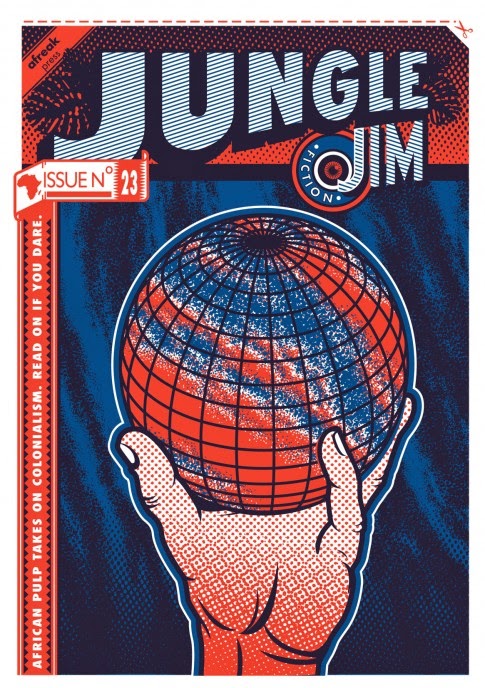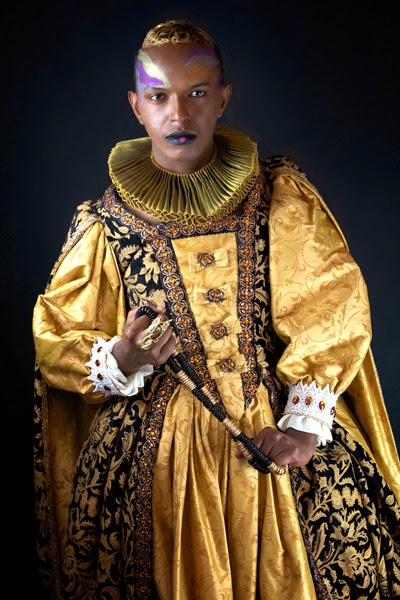In April this year, a list of the top 39 writers from the African continent under the age of 40 was released at the London Book Fair. There too, the baton was handed over from Bangkok to Port Harcourt as the UNESCO 2014 World Book Capital. The Africa39 writers would attend Port Harcourt Book Festival in October to celebrate this double achievement for the African continent. It seemed like a match made in book heaven.
 |
| (Bloomsbury, 2014) |
I tend to
like planning ahead so the first thing I did on arrival after check-in at the
hotel on Sunday night was to ask for the programme. I was informed I would
receive one in 15 minutes. By Monday breakfast, I still hadn’t received it so
was unsure what was happening. I went to some of the young organizers and again
I was informed I would get it within 15 minutes. It didn’t happen then.
Small tale of
cocktails
Having finally
found out that we had a free day which I spent gisting with Hawa Golakai,
Ukamaka Olisakwe and Chibundu Onuzo. We parted around four so we could shower
and dress up for the welcoming cocktail party by the pool. Ja. Ok. So it wasn’t at the Governor’s mansion
but that wasn’t going to deter any of us from wearing the special dresses for
this do. Hawa and I even wore heels. Me. In heels. And when we came downstairs
– fashionably late 30 minutes from when the cocktail party was to begin – the
cocktail party hadn’t started. We spotted Abubakar Ibrahim wearing a t-shirt and told him to return
to his room and change into something better. We weren’t going to allow him,
however brilliant and good looking he is, to be an Africa39 Brand Eroder
(thanks Bibi Bakare for this lovely phrase). We shouldn’t have bothered Abu. The
organizing staff who attended the event were mostly in their festival t-shirts.
There were
no fireworks at the cocktail party.
No
cocktails or mocktails either.
Just sodas.
And a
goodie bag. With the programme (yay, finally); two hard covers entitled Port Harcourt By the Book and NIGERIAN LITERATURE: A coat of many colours ,
the festival t-shirt, a festival-branded flask, a pen, a notebook (all of
which I was very grateful for). I also received a self-help book from Joel
Olsteen which, I suppose, was the World Book part of the World Book Capital. I
gave it to the woman in Housekeeping the next morning. She gave me extra water
bottles for the rest of the week.
The Programme
There were
seven events that the Africa39 writers were expected to take part in. This may
sound like an intense schedule for a six day festival but it wasn’t really.
After the opening ceremony with Bishop Matthew Kukah as the Keynote Speaker
(this continent needs more conscientious clergy and humans like him) on
Tuesday, our next event was at the University of Port Harcourt on Wednesday.
Bless editor of Africa39 Ellah Wakatama Allfrey. She somehow managed to facilitate a
discussion with all 22 of us (Igoni hadn’t arrived yet) while holding the
attention of the audience of students and literature academics. There were two
more Meet the Author occasions with all of us on Thursday and Friday at Ken
Saro-Wiwa Centre and at Alliance Francaise respectively. There were also two Meet the Author panels at
the main venue where writers were split into groups of 11 per panel. As these panels were never more than two
hours, none of the writers ever had occasion to talk for longer than ten minutes. Tragicomic this because writers couldn’t share their wisdom. To be fair
though, anyone who isn’t a writer but has attended more than one literary festival,
should be able to regurgitate writerly wisdom to FAQs.
Audience
Member: How do I become a writer?
Important
Writer (takes microphone. Clears throat. Pregnant pause so perhaps profound
answer?): Read. Read a lot. And write.
AM: You
story talks about a prostitution/homosexuality. Don’t you feel that your
harlot/gayism writings go against our African culture?
IW
(thinking she/he is Jesus and can answer a question with a question): Which and
whose African culture?
The only
panel which seemed to have substance because of time permitted was the one on the
Caine Prize. On panel were three past winners: Rotimi Babatunde (2012), Tope
Folarin (2013) and Okwiri Oduor (2014). Ellah Allfrey led the discussion. Questions
that have been making rounds on social media on the validity and the Africanness of the Caine Prize were
ably dealt with by the panelists.
 |
| Caine Prize 2014, 2013 & 2012 winners - Okwiri Oduor, Tope Folarin and Rotimi Babatunde (Photo Credit Brittle Paper Blog) |
It was fun
to hang around with writers I had known and admired from afar and meet new ones
during the Port Harcourt Book Festival. For this I shall always be grateful to the
organizers for inviting me. Some members of the organizing committee also took
time out of their schedules to show us around Port Harcourt after hours.
Communication
between the organisers and the writers could have been better. Some authors
came with their books but were never told where to have them for sale. Too
often too, we were told to wait in the lobby to go somewhere at a certain time
only to find ourselves there for a pretty long time. I also couldn’t help
thinking when I checked out that, with a hotel bill of about 175 thousand Naira for
each writer who attended, perhaps we could have been better utilized. Panels should
have been smaller. Some writers could have done schools outreach.
We would have interacted more with people from the UNESCO World Book Capital better beyond
Hotel Presidential.





































